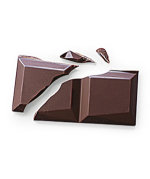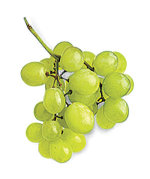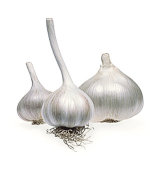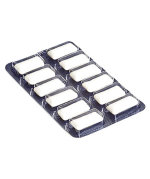Solutions to Common Pet Problems - How to handle your pets’ most annoying habits and show them (nicely) who’s boss.
Problem: Your Cat Tosses Food on the Kitchen Floor
Why it happens: Kitty might be implying she doesn’t like her bowl. “If it’s made of plastic, she’s right,” says Julia Szabo, author of Animal House Style. “Plastic harbors bacteria and imparts an off-putting taste to food and water.” Or she may just be playing with her food―it’s a game.Problem: Your Cat Scratches Everything
Once he has adapted to the post, move it to a place that’s less intrusive to your design scheme.What to do: Temporarily limit his access to furniture and find him the scratching post of his dreams, suggests Shain. “Some cats like sisal or carpeted posts―even cheap cardboard posts work for many,” she says. “Also, different cats scratch differently. Some want something flat on the ground. Others like to stretch up.” The key is to put the post right next to the piece of furniture he’s ruining until he learns what is OK to scratch and what isn’t.
Problem: Your Cat Meows at Night
What to do: If mating is the motive, promptly “fix” your pet. If not, test the cat for hyperthyroidism with a simple blood test. Treatment options are surgery, daily medication, or radioactive-iodine therapy. A change in diet may also help. “Antioxidants and vitamins E and C may reverse brain-aging changes,” says Moser. Once you rule out medical issues and outside disturbances, you’re probably dealing with a cat who wants attention at 3 a.m. Shain suggests giving the cat some nighttime-only toys before you hit the sack. “It’s a test of will, so steel your nerves and ignore her,” she says.
Problem: Your Pet Sheds
What to do: The first line of defense is to groom your pet for five minutes a day. To reduce shedding, try moisturizing your pet’s skin and hair through his diet. “Dry skin sheds more hair. Dry hairs drop off animals like the needles off a Christmas tree,” says Szabo. She recommends adding a few drops of olive or flaxseed oil to your cat’s or dog’s kibble. Your veterinarian might suggest a dietary supplement such as Derm Caps, which include fish and safflower oils and vitamin E, to improve coat condition. When it comes to cleanup, Szabo swears by the Dyson DC17 Animal, a vacuum designed for a hairy home, and StickySheets, which provide the fuzz-lifting action of a lint roller for a larger surface area.
Problem: Your Cat Claws at a Caretaker
What to do: “Slowly introduce the pet to the visitor so the cat will feel more comfortable with her at vacation time,” says Kathy Kwieran, founder of Kathy's Kitties, a cat-rescue and fostering facility in Kempner, Texas. “The caretaker shouldn’t pet or pick up the cat but should let the cat approach her.
Problem: Your Pet's Poop Adheres to Her Backside
What to do: “Try a more digestible diet to result in a small amount of firm, dark-colored stool that won’t stick to fur,” says Moser. “Look for a cat food that is 32 to 33 percent protein, 12 to 14 percent fat, and relatively low-fiber. For a dog, you want the protein level at 22 to 24 percent, fat around 12 to 14 percent, and low-fiber, low-residue.” If you still have a sticky situation, carefully crop the fur around the rear end with a beard trimmer or nose-hair scissors, or have a groomer do it.
Things your pet shouldn't eat
Listed here, from most (1) to least (4) dangerous, are common foods and drinks that make pets sick. If you think your dog, cat, or bird has consumed one of these items and you are concerned, contact your veterinarian.

1. Chocolate
Why: Stimulates the nervous system and the heart. Poisonous to: All species, but dogs are most likely to eat dangerous quantities. Possible effects of poisoning: Vomiting, increased thirst, restlessness, agitation, increased or irregular heartbeat, increased body temperature, tremors, seizures.

2. Grapes, Raisins
Why: Damage the kidneys. Poisonous to: Dogs, cats. Possible effects of
poisoning: Increased thirst, increased urination, lethargy, vomiting.
 3. Garlic, Onions
3. Garlic, Onions
Why: Damage red blood cells, causing anemia. Poisonous to: Cats, dogs. Possible effects of poisoning: Vomiting, red-colored urine, weakness, anemia.
 4. Xylitol (Found in sugarless gum.) Why: Causes increased insulin secretion, resulting in lower blood sugar levels. Poisonous to: Dogs. Possible effects of poisoning: Vomiting, lethargy, lack of coordination, seizures, jaundice, diarrhea.
4. Xylitol (Found in sugarless gum.) Why: Causes increased insulin secretion, resulting in lower blood sugar levels. Poisonous to: Dogs. Possible effects of poisoning: Vomiting, lethargy, lack of coordination, seizures, jaundice, diarrhea.
Below are more things that pets shouldn't eat :

5. Alcoholic Drinks
Why: Depress the nervous system.Poisonous to: All species.
Possible effects of poisoning: Vomiting, disorientation, diarrhea, lethargy, lack of coordination, difficulty breathing, tremors, coma, seizures.

6. Raw Yeast, Bread Dough
Why: Forms gas in the digestive track; fermentation of yeast causes alcohol poisoning.Poisonous to: All species, but only dogs typically ingest it.
Possible effects of poisoning: Distention of abdomen, vomiting, disorientation, diarrhea, lethargy, lack of coordination, difficulty breathing, tremors, coma, seizures.

7. Macadamia Nuts
Why: Cause muscle and nervous-system problems.Poisonous to: Dogs.
Possible effects of poisoning: Vomiting, lethargy, weakness, increased body temperature, tremors.
 8. Avocados
8. Avocados
Why: Contain persin, which damages the heart muscle.Poisonous to: Most species―birds are especially sensitive.
Possible effects of poisoning: Vomiting, diarrhea (in dogs), lethargy, difficulty breathing (in birds and rodents).

 Will Love Them Till My Last Breath ...
Will Love Them Till My Last Breath ...







